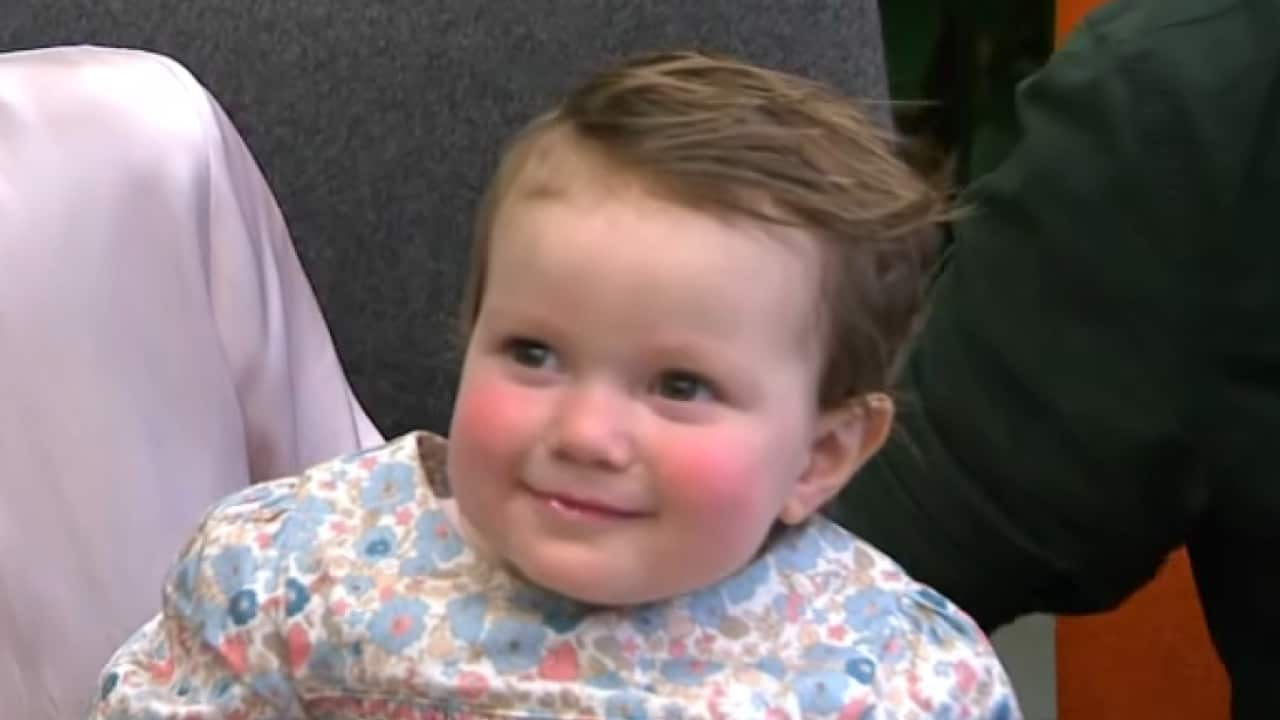At just four weeks old, Scout Bradstreet underwent surgery to remove a brain tumour.
Her mother Edwina said it was hard to remain optimistic at times, as Scout underwent further treatment.
“I was always very positive, like ‘Oh it’ll be fine, it’ll just be this or it’ll just be that’. And then the brain tumour was like ‘Oh God where do I find the positivity here?” she said.
Their daughter’s happy demeanour helped them stay hopeful, Scout’s father, Sean, said.
“Even from that age, like after her first surgery, she came out and the first thing she did was smile at us,” he said.
“Every time she’s gone in or had anything done, the first thing she does is she comes out and gives us a little smile. So, I think she’s kept us going through most of it.”
A personalised cancer treatment for Scout (centre) has given her parents Edwina (left) and Sean (right) fresh hope. Source: SBS News
Scout is one of more than a thousand children diagnosed with cancer in Australia each year.
Previously, treatment was given to target the type of cancer — but now scientists at the Children’s Cancer Institute and the Kids Cancer Centre have found a more effective method.
By analysing the genes within the patient’s cancer cells — known as ‘precision medicine’ or ‘personalised medicine’ — researchers have been able to find changes that make the cancer more responsive to different treatments.
“It might be a genetic change that we see in adults with melanoma, or adults with breast cancer, and not one that we normally see in children’s cancer,” study author, professor David Ziegler, said.
“But we will then access the drug that’s usually used to treat adult melanoma patients, and instead use that to treat this child with cancer.”
Sean Bradstreet said that the drug used for his daughter, Scout, was developed from an adult lung cancer treatment.
“They grew her tumour in the lab and it melted the tumour in the lab,” he said.
“We started giving her the medication, and the first scan was two months later and it showed it reduced the tumour by 30 per cent.
“Ever since, it’s been stable. Stable has been our favourite word at the minute, so that’s all we want to see.”
A number of the 384 children in the program had aggressive cancers that had not responded to standard treatment, such as chemotherapy.
Observed over three years, 55 per cent achieved complete or partial remission, or had their disease stabilised for at least six months.
Ziegler said after two years, researchers saw some survival rates double.
“We can now do this testing, we can find new treatments and we can offer these patients hope where previously we had none,” he said.
The first tumour that researchers looked at in 2015 took one year to analyse.
Now, they’re able to get comprehensive results back to clinicians in less than four weeks, meaning faster treatment and better outcomes for young patients.
The findings have been published in the journal Nature Medicine and will be shared with clinicians worldwide to expand the benefits of this homegrown research.

